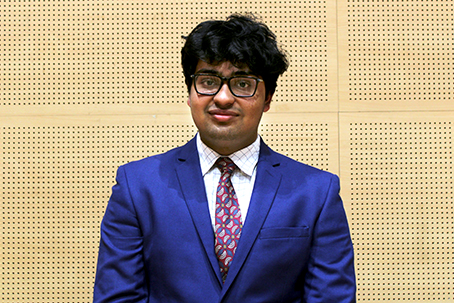
Deputy Secretary-General : Rushaan Agrawal
“Diplomacy is the Art of telling people to go to hell in such a way they ask for directions.”
- Winston Churchill
Dear delegates and MUN directors,
78 years, 6 months, and 22 days have passed since the end of the Second World War, yet the world finds itself at a crossroads: cooperation or discord. History is evidence that the permanence of ideological conflict is an intrinsic characteristic of the human condition. Whether it be the Crusades or the Cuban Missile Crisis, the clash of ideas represents the very fundamental tenet upon which the United Nations was built.
We are faced with a choice: to accept the realist view that peace is simply an armistice in preparation for the next war, or to embrace the liberal view that the utilitarian good requires the assistance of all.
The UN Charter, in its first two articles, confidently declares the need to develop friendly relations based on the equality of states to preserve international peace. However, one might wonder whether these words are the result of foolish optimism or a genuine attempt to make the world a better place. When we acknowledge the existence of other ideologies, do we do so only to diminish them? The UN, however, provides a forum to discuss these ideas with an open mind. Is diplomacy about getting one's way, or is it about reaching an equitable agreement? If it is the latter, then why even bother with elaborate treaties and declarations?
An anarchist might argue that democracy is nothing but the tyranny of the majority, but perhaps it is something more profound. For the UN, democracy represents equality and the ability to peacefully discuss ideas. Diversity is a key element of democracy, with 196 countries offering 196 viewpoints and engaging in 196 discussions. Perhaps our past failures can be attributed to a lack of such discourse. When we view diplomacy as a means of peaceful discourse rather than instinctively escalating to conflict, we begin to understand the real need for diplomacy.
The globalized world faces unprecedented challenges, such as climate change and terrorism. Even from a realist perspective, cooperation becomes essential to protect self-interest. This underscores the need for synergy, only achievable when diversity is acknowledged. Democracy provides the platform to present this diversity, explaining why the UN and its institutions follow a democratic structure. While the permanent members of the Security Council may hold undue non-democratic influence over discourse, international law reigns supreme in the fabric of international relations. Founded on the principle of protecting peace, international law serves as an institution beyond the control of member states, embodying diversity, encouraging diplomacy, and safeguarding democracy.
The 21st Edition of DAIMUN celebrates this very notion of fraternity and diplomacy, truly embodying the values engraved within the fabric with the UN charter: respect, diversity, equality, peace and democracy. Only one thing can be guaranteed the assistance of the global community is required for effective change.
Delegates, as the curtains draw to a close, the question remains: Will you leave your mark on history?
Warm Regards,
Rushaan Agrawal
Deputy Secretary-General
DAIMUN 2024